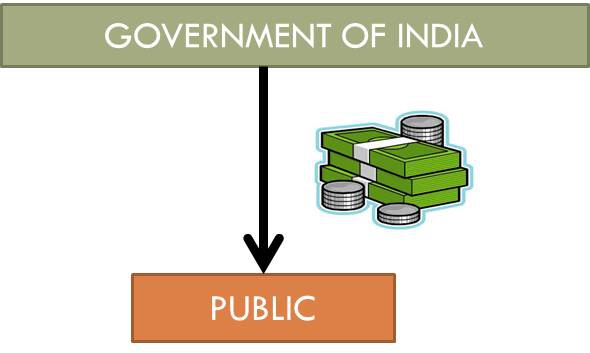
A super simple thread to help everyone understand the concept of 'Fiscal Deficit' and what happens when government spends more than its receipts. 👇🧵
#fiscaldeficit #economics #financialliteracy
#fiscaldeficit #economics #financialliteracy
1. Let us understand everything bit by bit.
Say, Raju is a businessman. Now, like every businessman, Raju is ambitious and curious to know his profit. Hence, he keeps his accounts to calculate his profit.
Say, Raju is a businessman. Now, like every businessman, Raju is ambitious and curious to know his profit. Hence, he keeps his accounts to calculate his profit.
2. Throughout the year, his total revenue was Rs.10 lakh and his total expenditure was Rs.8 lakh. Hence, Raju is having profit or surplus of Rs.2 lakh.
3. The next year, due to lack of demand, his revenue fell to Rs.7 lakh and his expenses increased to Rs.9 lakh. Hence, Raju is now having loss or deficit of Rs.2 lakh.
4. Now, let us replace ‘Raju’ with ‘Government’ and you get the concept of ‘Fiscal surplus/ deficit’.
5. To put in simple words, every year government receives income through sources like Taxes, fines, penalties, license fees, etc. and expends money on various infrastructure projects, salaries to its employees, etc.
6. Now if,
👉The Government Receipt (excluding borrowings) > The Government Expenditure, then the difference is called as ‘Fiscal Surplus’.
👉The Government Receipts (excluding borrowings) < The Government Expenditure, then the difference is called as ‘Fiscal Deficit’.
👉The Government Receipt (excluding borrowings) > The Government Expenditure, then the difference is called as ‘Fiscal Surplus’.
👉The Government Receipts (excluding borrowings) < The Government Expenditure, then the difference is called as ‘Fiscal Deficit’.
7. Now, in India’s case we rarely see a situation like ‘Fiscal Surplus’ as Government ‘Expenditure’ almost always exceeds Government ‘Receipts’.
Many people see this in a bad light. But, it is not as bad as it looks. Why so? Lets find out!
Many people see this in a bad light. But, it is not as bad as it looks. Why so? Lets find out!
8. India is a developing country. And when we say this, it would mean that the government is always trying hard to increase the economic growth rate.
9. Now, one way of doing this is by increasing the government expenditure. Let’s dig deep to understand how increased government expenditure could mean good for economy. 

10. One man’s income would mean another man’s expenditure. Hence, with government increasing the expenditure, there will be more government projects like construction of airports, roads, dams, flyovers, etc. This would mean more money in the hands of people.
11. Whenever, there is increase in income of people, there will be increase in demand of goods and services due to increase in the purchasing power. Hence, this will cause the money cycle to move faster.
12. More income would also mean more savings and hence the bank deposits will boost. More bank deposits would also boost the loan and credit flow.
More credit would mean businesses would invest more money and there will be increase in employment, output and income.
More credit would mean businesses would invest more money and there will be increase in employment, output and income.
13. Thus, the government expending more will have a multiplier like effect. You may read this to get a better picture. quora.com/Why-cant-20-la…
14. Now, another question that may pop up here is how can government spend more than it is earning. Well, that is where the borrowing part comes.
15. The fact that there is Fiscal Deficit and not Fiscal Surplus would mean that the government needs more money for expending that what it actually has.
16. Hence, the government will have to borrow money to finance the deficit. It may borrow from RBI (Reserve Bank of India) or even from International organizations like IMF (International Monetary Fund) or even the World Bank.
17. Every year the government plans its income and expenditure through what we popularly know as ‘Union Budget’. Fiscal Deficit is always expressed as a percentage of GDP (Gross Domestic Product) which truly represents the value of economy for an year.
18. If you want to understand the concept of GDP, you may refer this thread,
https://twitter.com/caswapnilkabra/status/1342447931777982464?s=20
Tagging @gvkreddi, @Dinesh_Sairam, @MehHarshil, @dmuthuk for better reach.
Let us spread financial literacy!
Let us spread financial literacy!
• • •
Missing some Tweet in this thread? You can try to
force a refresh






